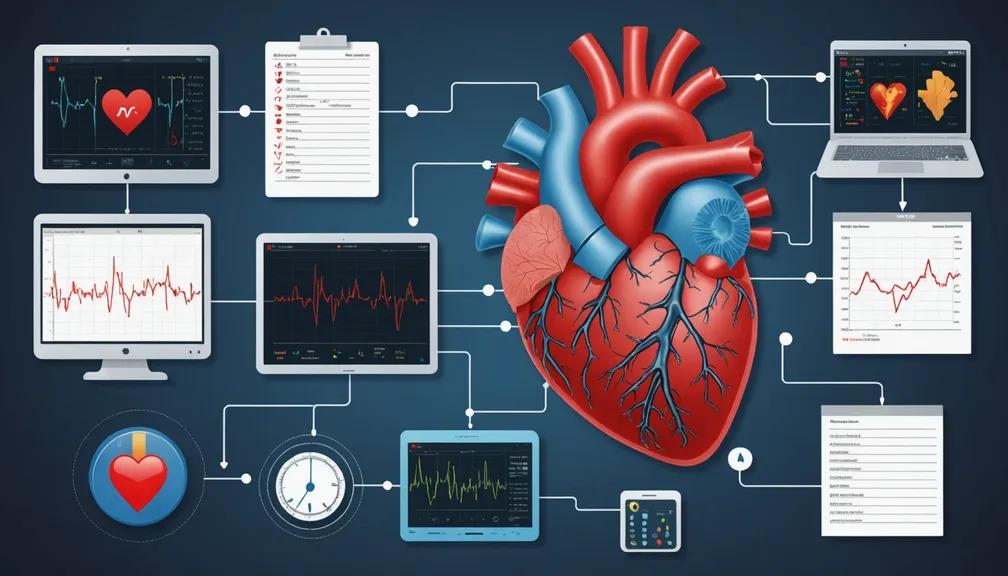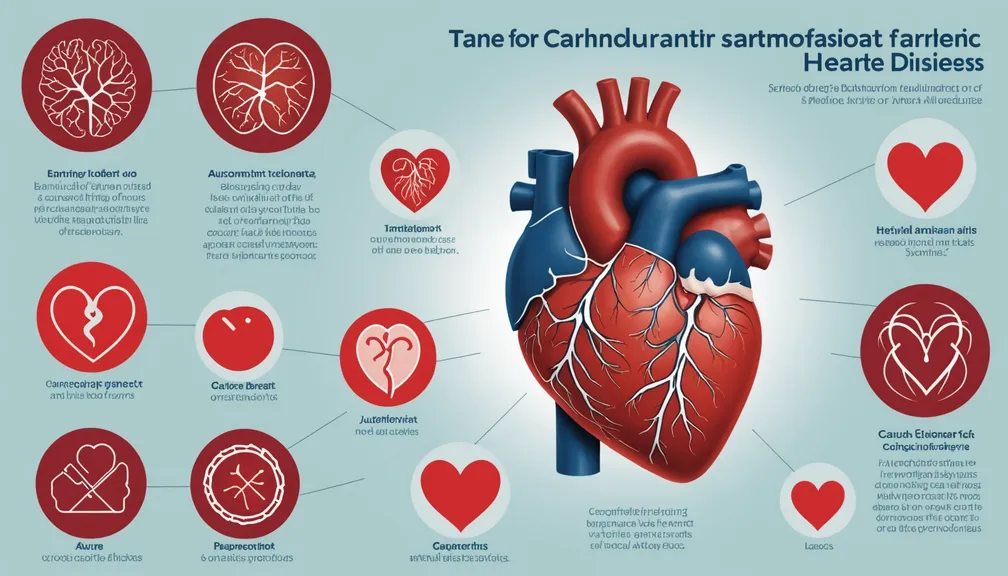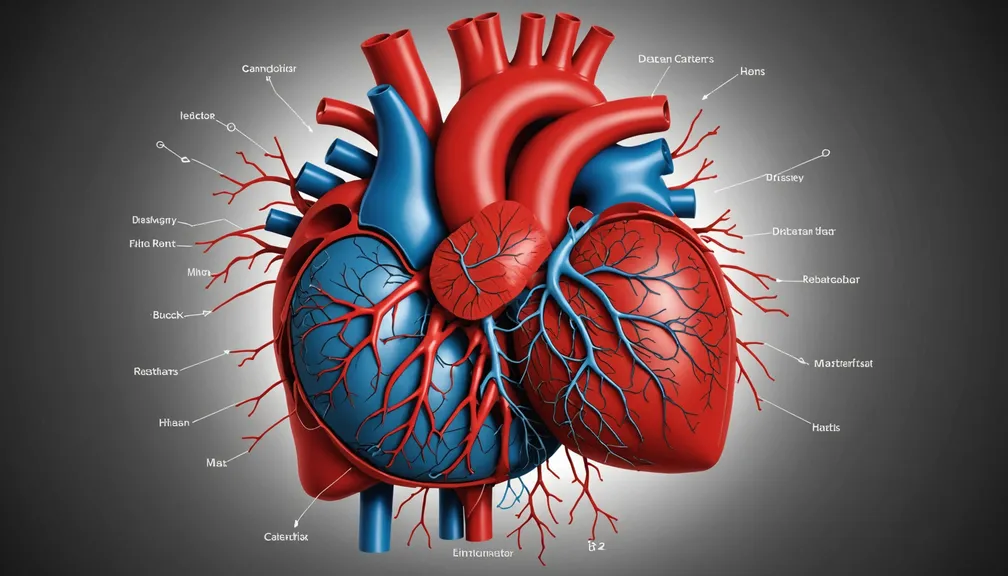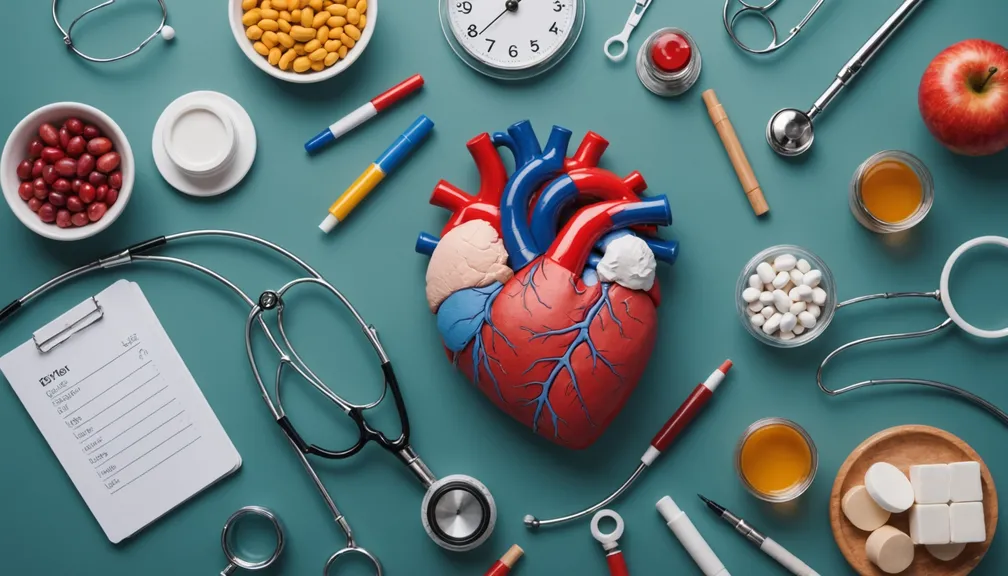Recognizing Symptoms of Rare Heart Conditions
Understanding the signs of rare cardiovascular diseases is crucial for early detection and effective management. This lesson will help you identify the symptoms, understand their significance, and know when to seek medical help.
Common Symptoms of Rare Heart Conditions
While each rare heart condition may present unique symptoms, some common signs to watch for include:
- Unexplained Fatigue
- Feeling excessively tired without a clear reason.
-
Difficulty performing daily activities due to low energy levels.
-
Shortness of Breath
- Trouble breathing during minimal physical exertion.
-
Feeling breathless even when resting or lying down.
-
Chest Pain or Discomfort
- Persistent chest pain that isn't related to physical activity.
-
A feeling of pressure, squeezing, or fullness in the chest.
-
Irregular Heartbeats
- Palpitations or a rapid, fluttering, or pounding heart.
-
Skipping beats or experiencing an irregular rhythm.
-
Swelling in Extremities
- Noticeable swelling in the legs, ankles, feet, or abdomen.
-
Fluid retention that doesn't seem related to diet or activity.
-
Dizziness or Fainting
- Feeling lightheaded or dizzy without a clear cause.
-
Experiencing fainting spells or near-fainting episodes.
-
Unexplained Weight Gain
- Rapid or unexplained increase in body weight.
-
Fluid buildup contributing to weight changes.
-
Blue or Pale Skin
- Cyanosis, or a bluish tint to the skin, lips, or nails.
- Unusual paleness that persists over time.
When to Seek Medical Attention
Recognizing these symptoms is the first step, but knowing when to seek help is equally important:
- Persistent Symptoms
-
If symptoms last longer than a few days or worsen over time.
-
Sudden Onset
-
Experiencing symptoms suddenly or rapidly deteriorating health.
-
Severe Discomfort
-
Intense chest pain, extreme shortness of breath, or significant swelling.
-
Recurring Issues
- Frequent episodes of palpitations, dizziness, or fainting.
Understanding the Importance of Early Detection
Early recognition and treatment of rare heart conditions can:
- Prevent Complications
-
Reduce the risk of severe health issues like heart failure or stroke.
-
Improve Quality of Life
-
Manage symptoms effectively to maintain daily activities and well-being.
-
Enhance Treatment Outcomes
- Allow for timely interventions and personalized treatment plans.
Types of Rare Cardiovascular Diseases
Some examples of rare heart conditions include:
- Inherited Cardiomyopathies
-
Genetic disorders affecting the heart muscle, such as hypertrophic or restrictive cardiomyopathy.
-
Vascular Anomalies
-
Abnormalities in blood vessels, such as vasculitis or congenital vascular malformations.
-
Arrhythmogenic Right Ventricular Cardiomyopathy (ARVC)
-
A condition where heart muscle is replaced by fatty or fibrous tissue, leading to arrhythmias.
-
Ehlers-Danlos Syndrome (Cardiovascular Type)
- A connective tissue disorder affecting heart valves and blood vessels.
Managing Symptoms and Seeking Support
Effective management involves a combination of medical treatment and lifestyle adjustments:
- Follow Medical Advice
-
Adhere to prescribed medications and treatment plans.
-
Monitor Symptoms
-
Keep a diary of symptoms to discuss with your healthcare provider.
-
Lifestyle Modifications
-
Maintain a heart-healthy diet, engage in appropriate physical activity, and manage stress.
-
Support Systems
- Connect with support groups or counseling services for emotional and practical support.
Professionals Who Can Help
Navigating a rare heart condition often requires a team of specialized healthcare professionals:
- Cardiologists
-
Specialists in heart diseases who can diagnose and manage cardiovascular conditions.
-
Genetic Counselors
-
Experts who assess genetic risks and provide guidance for inherited heart conditions.
-
Vascular Surgeons
-
Surgeons specializing in blood vessel disorders and vascular anomalies.
-
Heart Failure Specialists
-
Doctors focusing on advanced heart failure management and treatment options.
-
Primary Care Physicians
-
Your main healthcare provider who coordinates care and referrals to specialists.
-
Nurses and Nurse Practitioners
-
Provide ongoing care, education, and support for managing symptoms.
-
Physical Therapists
- Help design safe exercise programs to improve cardiovascular health and overall fitness.
Tips for Communicating with Healthcare Providers
Effective communication with your healthcare team can enhance your care experience:
- Prepare Questions in Advance
-
Write down any questions or concerns before your appointment.
-
Be Honest About Symptoms
-
Share all symptoms, even those that seem unrelated or minor.
-
Keep a Symptom Diary
-
Document the frequency, duration, and intensity of your symptoms.
-
Understand Your Treatment Plan
-
Ask for clarification on medications, procedures, and lifestyle recommendations.
-
Seek a Second Opinion
- If unsure about a diagnosis or treatment, consult another specialist for confirmation.
Recognizing the symptoms of rare heart conditions and seeking timely medical attention can make a significant difference in managing your health. Stay informed, communicate openly with your healthcare team, and utilize available resources to support your journey toward better heart health.






